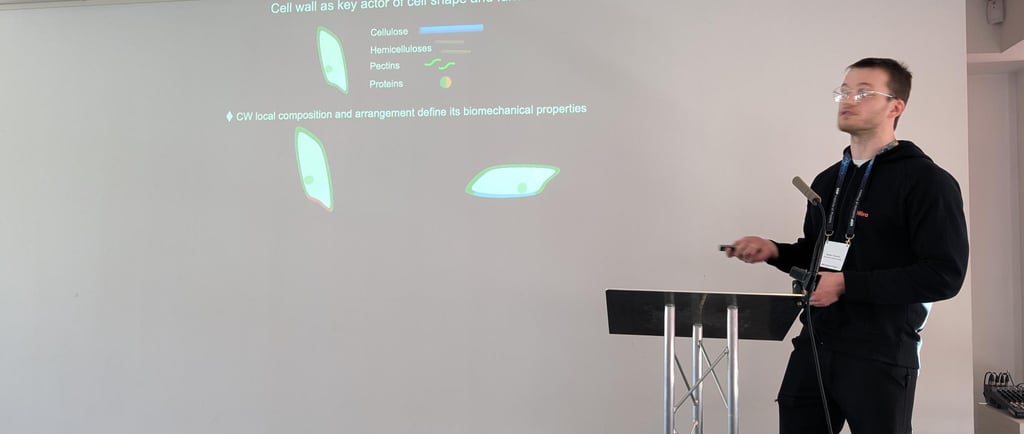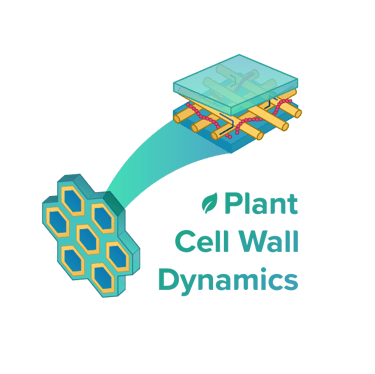Light-Controlled Tools to Explore Plant Cell Walls: Bastien Dauphin Presents at UKPBC 2025
The Cell Wall Dynamics Lab's postdoctoral researcher presented his latest work at the UK Plant Biomechanics Conference 2025, focusing on chemo-optogenetic tools for studying plant cell wall mechanics.
NEWS
Cell Wall Dynamics team
3/28/20251 min read


On 28 March, researchers gathered in Leeds for the UK Plant Biomechanics Conference 2025, a one-day event exploring how plants monitor and respond to changes in their structure. Among the speakers was Bastien Dauphin, postdoctoral researcher in our lab, who presented a new chemo-optogenetic toolset designed to study how plant cells detect and respond to cell wall damage.
Plant cells depend on their cell walls for shape, strength, and protection. But the wall isn’t just a passive barrier—it’s constantly monitored and remodelled in response to stress, growth, and environmental change. This process, known as cell wall integrity (CWI) maintenance, allows plants to detect damage and adjust their biology accordingly. While some chemical signals are well characterised, the cues related to wall structure and mechanics remain poorly understood.
To study these more elusive signals, Bastien is developing a chemo-optogenetic system that allows us to trigger highly localised, controlled changes in the cell wall using light. The method involves expressing two inactive halves of a wall-modifying enzyme in plant cells. When exposed to light, the enzyme reassembles and becomes active, allowing precise spatial and temporal control of cell wall alterations.
The system is currently being tested in vitro, with in vivo experiments in Arabidopsis thaliana to follow. By pairing this approach with advanced microscopy, we can observe, in real time, how changes in the wall affect its properties—and how cells near the affected area respond. Thus, this method offers a new way to probe how plants perceive damage and maintain wall homeostasis, potentially revealing how local events influence broader growth and defence responses.
Bastien’s talk was part of a broader conversation at UKPBC 2025 that for sure discussed how new technologies are reshaping the study of plant mechanics. His contribution highlights the potential of these innovative approaches to open up previously inaccessible questions in plant biology.
